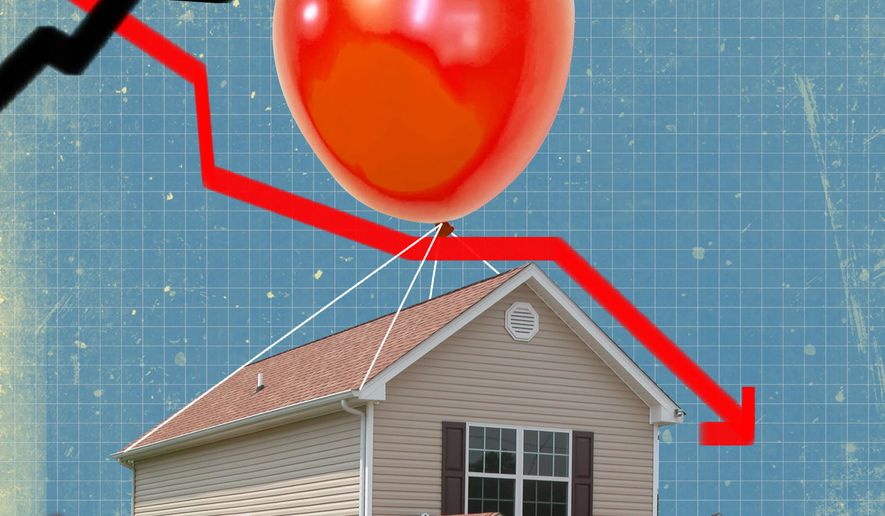OPINION:
Housing affordability has been a crucial matter for some time, and younger generations fear homeownership may always be out of reach. High property taxes, heavy-handed regulations, elevated interest rates, soaring insurance premiums and a lack of new development have compounded to make the homebuying process burdensome and nearly impossible for many Americans.
Making matters worse, renters are also feeling the squeeze with monthly costs climbing faster than wages. Some analysts say rent inflation is one of our country’s biggest economic problems. Gallup polls show the cost of living and the cost of owning or renting a home have consistently topped the charts as America’s most worrisome financial problems.
Fortunately, greater attention is being drawn to the housing market, and discussions on how to mitigate housing costs are being discussed and debated. The president is reportedly considering declaring a housing emergency this autumn. Unfortunately, some of the policies and solutions proposed and gaining ground are counterintuitive and could be counterproductive.
History has shown time and time again that price controls and restrictions on investment do little to improve supply needs, let alone living standards. Yet figures at all levels of government, such as New York mayoral candidate Zohran Mamdani and Sen. Elizabeth Warren, Massachusetts Democrat, are echoing these proposals. This is truly disconcerting, given that such ideas do not address the underlying problems homebuyers face. In fact, these policies would likely exacerbate the gloomy situation for aspiring homeowners.
Take the policy of shutting out investors from the marketplace, which New York just passed into law, and Congress and other states are considering doing as well. This will dry up the private capital needed for construction and innovation. Converting private housing into communal projects would erode property rights and deter development. Rent freezes would discourage landlords from maintaining or building new units.
Economist Walter Williams criticized New York’s rent control policies. “Short of aerial saturation bombing, rent control might be one of the most effective means of destroying a city,” he said. He is right. New York needs more housing options, not fewer.
Public officials should look to Austin, Texas, for inspiration. Austin’s housing market is making strides toward affordability, and it can serve as an example of reforms and projects that should be given serious consideration.
The housing sector needs construction, not controls. It needs private capital, not centralized planning. Responsible and entrepreneurial investors should be empowered to step in and provide support where government and local developers have failed. Thankfully, this seems to be the focus of Housing and Urban Development Secretary Scott Turner.
Mr. Turner, working with the Interior Department, has created a task force to address shortages and accelerate construction by identifying federal land that could be used for residential development. Together, HUD and the Interior Department aim to eliminate red tape and restrictions that drive up the price of housing and enact a comprehensive housing reform bill with the support of the Senate.
The Renewing Opportunity in the American Dream to Housing Act of 2025, introduced by Sen. Tim Scott, South Carolina Republican, offers real promise. It draws on previously introduced bills from both sides of the aisle to tackle America’s housing crisis with a multifaceted approach: boosting supply, reducing regulatory barriers, modernizing financing, expanding access for underserved communities, and strengthening oversight.
The bill incentivizes construction and development by easing zoning restrictions, streamlining approval processes, and creating competitive federal grants for states and cities. These provisions aim to unlock more private capital, accelerate construction, and give families more attainable pathways into homeownership, not through government mandates but through market-driven incentives.
If America is to confront its housing crisis honestly, it must reject quick fixes and ideological experiments and embrace market-based principles that promote private investments and opportunities for advancement and expansion. HUD and the Interior Department are taking the right approach: unleashing supply, cutting red tape, and working with leaders in Congress to deliver lasting reform to restore the American dream of homeownership.
• Kimberlee Josephson is an associate professor of business at Lebanon Valley College and serves as an adjunct research fellow with the Consumer Choice Center. Follow her on X @dr_josephson.




Please read our comment policy before commenting.